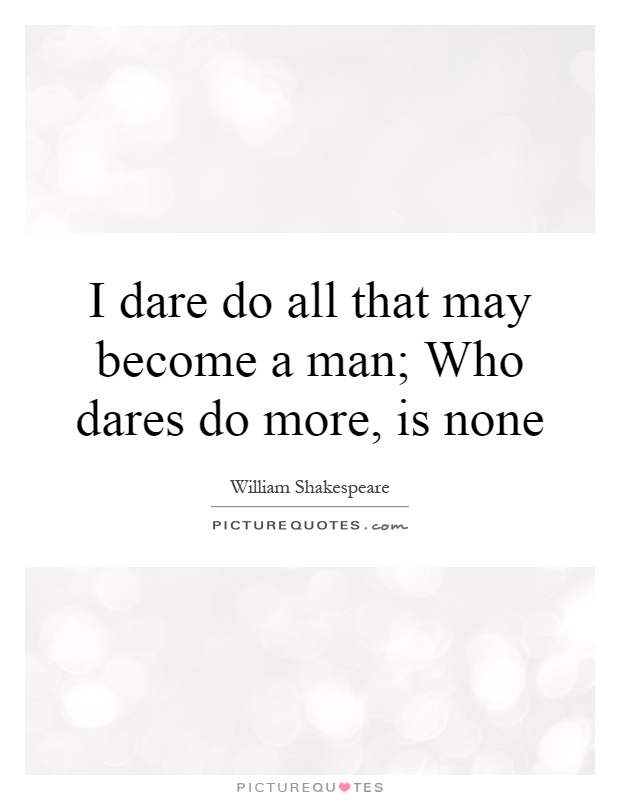I dare do all that may become a man; Who dares do more, is none

I dare do all that may become a man; Who dares do more, is none
In William Shakespeare's play Macbeth, the character Macbeth utters the famous line, "I dare do all that may become a man; Who dares do more, is none." This line is spoken by Macbeth as he contemplates the idea of murdering King Duncan in order to fulfill the witches' prophecy that he will become king.This quote reflects Macbeth's internal struggle with his own sense of masculinity and honor. He believes that a true man should be brave and courageous, willing to do whatever it takes to achieve his goals. However, he also recognizes that there are limits to what is acceptable behavior, and that crossing those limits would make him less of a man.
Macbeth's words reveal his conflicting emotions and the moral dilemma he faces. On one hand, he is driven by ambition and a desire for power, willing to do whatever it takes to achieve his goals. On the other hand, he is haunted by guilt and a sense of right and wrong, knowing that the murder of an innocent man is a heinous act that goes against his own moral code.
The quote also speaks to the theme of masculinity and power in the play. Macbeth believes that true masculinity is defined by one's ability to take risks and assert dominance over others. However, he also comes to realize that true power comes from within, and that it is not dependent on external acts of violence or aggression.
Ultimately, Macbeth's journey is a tragic one, as he descends into madness and despair as a result of his actions. The quote serves as a reminder of the consequences of unchecked ambition and the dangers of losing sight of one's own moral compass. It is a cautionary tale about the destructive nature of power and the importance of staying true to oneself.












 Friendship Quotes
Friendship Quotes Love Quotes
Love Quotes Life Quotes
Life Quotes Funny Quotes
Funny Quotes Motivational Quotes
Motivational Quotes Inspirational Quotes
Inspirational Quotes